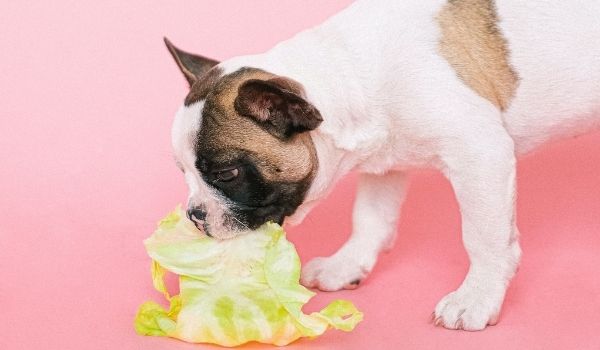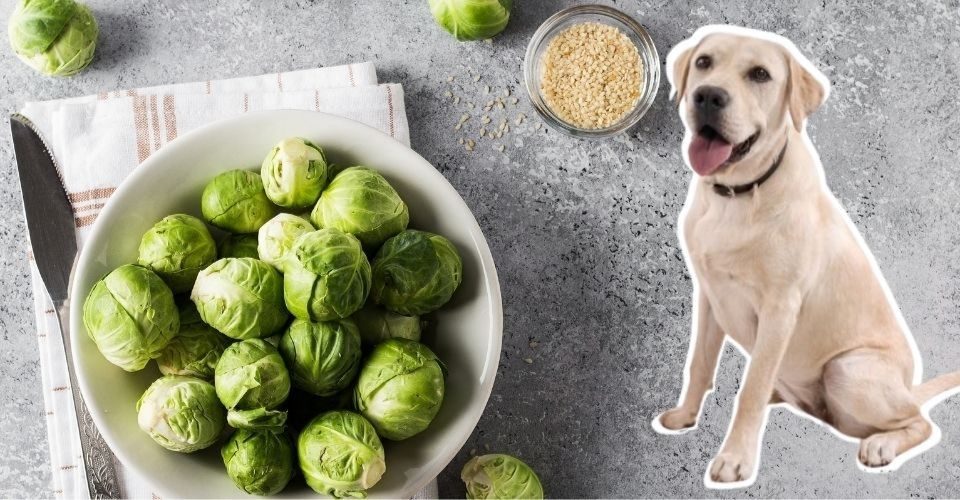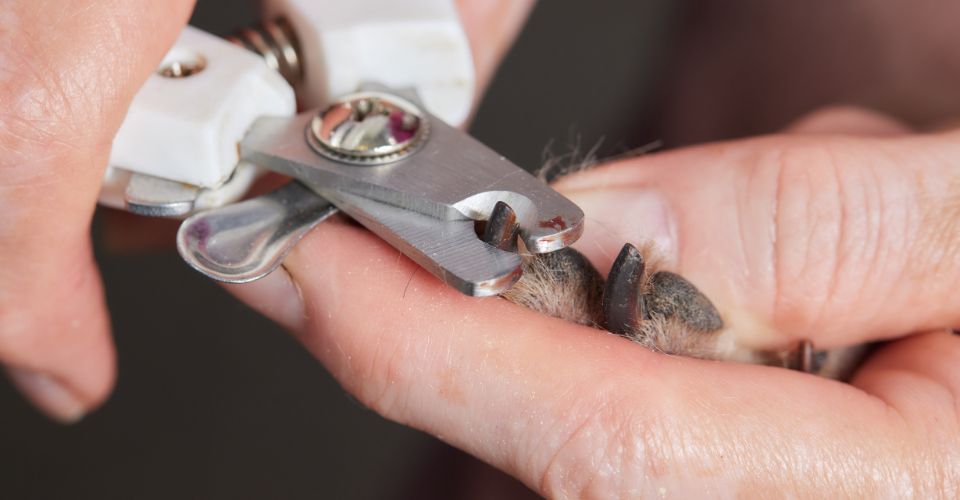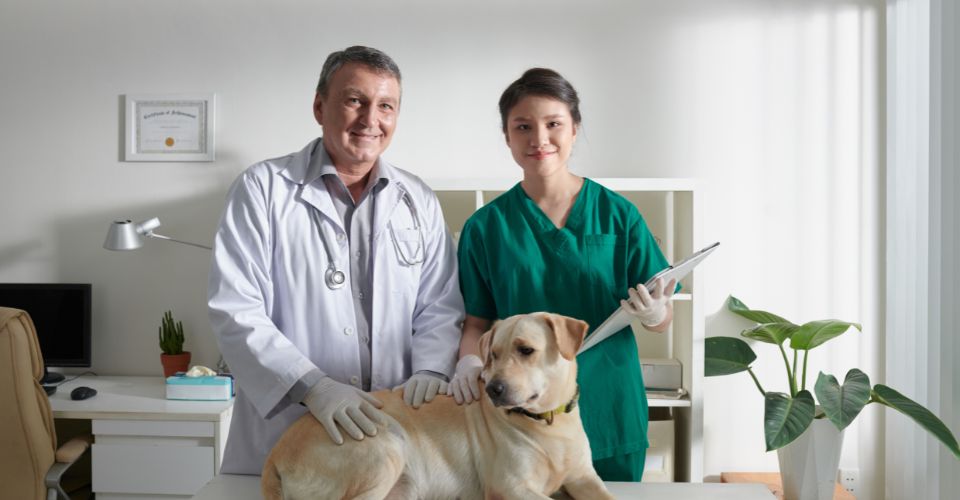Brussel sprouts are loved by the majority of people. These veggies have the appearance of tiny cabbages. Brussel sprouts are rich in beneficial minerals, vitamins, fibers, and antioxidants despite their distinctive flavor. But can dogs eat Brussel sprouts?
Are Brussel sprouts safe for dogs? Are Brussel sprouts bad for dogs? Do dogs love Brussel sprouts, or do they hate them? How can you make dogs like Brussel sprouts? How much Brussel sprouts are appropriate for dogs?
This is what we are going to address in this article.
Can Dogs Eat Brussel Sprouts?
Yes. Dogs can eat Brussel sprouts. You may give your dog a snack of sprouts or put some in their food bowls with their meal. They are generally non-toxic to dogs—you can give sprouts to your dog but in moderation.
How to Figure Out Whether Dog Loves to Eat Brussel Sprouts or Not?
Dogs, like humans, have strong reactions to meals they don’t like, and we may use these indications to evaluate if we should keep feeding our dog these foods or switch to something else. If you provide your dog Brussel sprouts for the first time and they chew and swallow the vegetable without hesitation, this is an indication that they enjoyed eating Brussel sprouts. If your dog likes Brussel sprouts, he may drool a lot, lick his lips, gaze at you and the meal, paw at you, leap up at you and the food, pace around, wag his tail, and erect his ears up.
If you suspect your dog dislikes Brussel sprouts, there are a few telltale indicators to look out for. There is a possibility that your dog tries to eat food but later spit it out. Or, your dog may only like to play with the Brussel sprout as if it was a ball but not eat it.
Read: Can dogs eat edamame?
How To Make Dogs Like Brussel Sprouts?
When offering Brussel sprouts to your dog, make sure they are cooked in the safest way possible. This implies that you should properly wash the sprouts before cooking them. This will remove any hazardous substance such as excrements, insecticides, and herbicides. The easiest way to cook sprouts for your dog is to steam them after they have been thoroughly washed and trimmed.
Yes, this is the stinkiest way to prepare them, but it allows you to boil them without using butter or oil, and the sprouts can become highly soft for your dog. You can either microwave them with some water or boil them until they are cooked in a saucepan of unsalted water if you want.
Raw Brussel sprouts or those that aren’t fully cooked can be rough, and you don’t want your dog to choke on them. Keep in mind that you don’t want to overcook the sprouts since they’ll lose a part of their nutritious value if they’re cooked for too long.
No Seasonings!
If you are cooking Brussel sprouts for dogs, you should not add any seasoning like cinnamon powder, salt, onions, and garlic to it. These seasonings are toxic to cats.
What Is The Appropriate Quantity of Brussel Sprout To Feed Your Dog?
When it comes to feeding Brussel sprouts to your dog, it’s vital to understand the correct portion size and which recipes are suitable for dogs. The amount of Brussel sprouts your dog should consume is determined by their size. A maximum serving amount for a dog should not exceed three Brussel sprouts. Petite puppies should be given 1/4 to 1 Brussels sprout at a time.
Brussel sprouts should be consumed in moderation and just once in a while. Start with modest quantities if your dog has never had a Brussel sprout before. Give 1/4 to 1/2 of a cooked Brussel sprout to your puppy, depending on their size.
If your dog has no negative reactions to the nutritious vegetable, you may give it to him occasionally as a treat in small amounts.

Are Brussel Sprouts Safe for Dogs?
Brussel sprouts are not only safe for our dogs but also have to offer many health benefits to our canine friends. Below we have discussed some of the health benefits of Brussel sprouts for dogs.
It’s safe for dogs to eat Brussel sprouts; let’s have a look at some exciting benefits of dogs eating Brussel sprouts.
Source of Fiber
Brussel sprouts are rich in fiber, which helps to keep the digestive system healthy and function smoothly. A modest quantity of fiber regulates their digestive processes.
Insoluble dietary fiber is beneficial to all dogs. Water draws insoluble fiber into your dog’s feces, making it softer and easier to pass with less pressure on his intestines. As a result, insoluble fiber helps excretion and promotes colon and gut health.
Important Nutrients
Brussel sprouts include two useful minerals for a dog’s health, in addition to the five essential vitamins. Minerals support various biological processes and maintain the health of the skin, bones, heart, and muscles of your dog.
One of the two nutrients is Potassium which is required in large numbers for a dog’s body to operate correctly and maintain a good fluid balance. Potassium functions at the cellular level to maintain a healthy pressure equilibrium with salt and to generate energy.
Manganese, present in Brussel sprouts, is a mineral that aids in the digestion of protein, carbs, and amino acids. This vitamin aids in the maintenance of healthy bones and cartilage in joints, as well as the production of energy in your dog’s body.
Essential Vitamins
Brussel sprouts are full of vitamins, so they should be in the diet of dogs.
Brussels contains Vitamin A, which is a must-have for canines. It is necessary for their skin, coat, and the health of the muscles and nerves. It also aids in effective neurological function.
Vitamin K, which is necessary for strong, healthy bones and blood clotting function, is abundant in Brussels sprouts.
Brussel sprouts also contain a significant amount of Vitamin C, which is a vital immune booster. In dogs, it is claimed to decrease systemic inflammation and protect against cell damage and cancer.
Lastly, sprouts also contain B vitamin family—B1 and B6—as well. Vitamin B1, also known as thiamine, aids your dog’s body in metabolizing carbohydrates for energy. Thiamine is also necessary for the health of the brain, nerves, and organs.
Disadvantages of Eating Brussel Sprouts For Dogs
Everything comes up with advantages and disadvantages, so let’s have a look at the cons of Brussel sprouts for dogs.
Gas Problem
Sprouts are high in isothiocyanate, a chemical that increases the capacity of the intestinal muscle to drive food and waste through the gastrointestinal system. This leads to the build-up of bacteria in the body that escape the body as gas.
Stomach pain
There are no chemicals or poisons in this healthy vegetable, so if your dog gets a momentary stomach upset, it’s nothing to worry about. But if the stomach pain and diarrhea do not go away on their own, you should consult a veterinarian.
Is It Safe for Dogs to Eat Frozen Brussel Sprouts?
It all depends on what you’re referring to. If you mean purchasing frozen sprouts and cooking them, then yes, it’s the same as buying raw sprouts and preparing them from scratch.
However, if you want to feed your dog a frozen Brussel sprout that hasn’t been thawed yet, this might be difficult for small, miniature, or toy dog types to eat.
Raw Brussels are already difficult to chew, and freezing them makes them even more difficult. Choking will be a serious possibility.
Caution!
Never share frozen or even uncooked Brussel sprout with a dog. It is a bit hard to chew a raw Brussel, so it poses a huge choking hazard to our canine friends.
Can Dogs Eat the Stalks of Brussel Sprouts?
While Brussel sprouts appear lovely when still connected to the long stalk, raw stalks are generally not considered healthy for dogs to consume.
With their thick outer casings, the stalks are exceedingly stiff and fibrous when unpeeled. However, some dog owners claim that they are edible on the inside, similar to how the insides of broccoli stalks are delicious once the outer shells are removed.
Smaller dogs who try to eat unpeeled raw Brussel sprout stalk risk choking, perforation, or impaction if they eat it.
Can Dogs Eat the Leaves of Brussel Sprouts?
The leaves of Brussel sprouts are safe for your dog to consume. Individual raw leaves are unlikely to cause as much gas in your dog as whole raw sprouts would.
You may also steam the leaves and serve them as a garnish on top of your dog’s regular food. This is an excellent approach to feed this vegetable to our canine friends.
Final Verdict: Can Dogs Eat Brussel Sprouts?
Yes, dogs can eat Brussel sprouts. This veggie is not only safe for our dogs to consume but also has to offer them many health benefits. However, as with other human foods, it should only be fed occasionally as a treat and that too in moderate amounts.
Explore: Can Dogs Eat Human Food?





